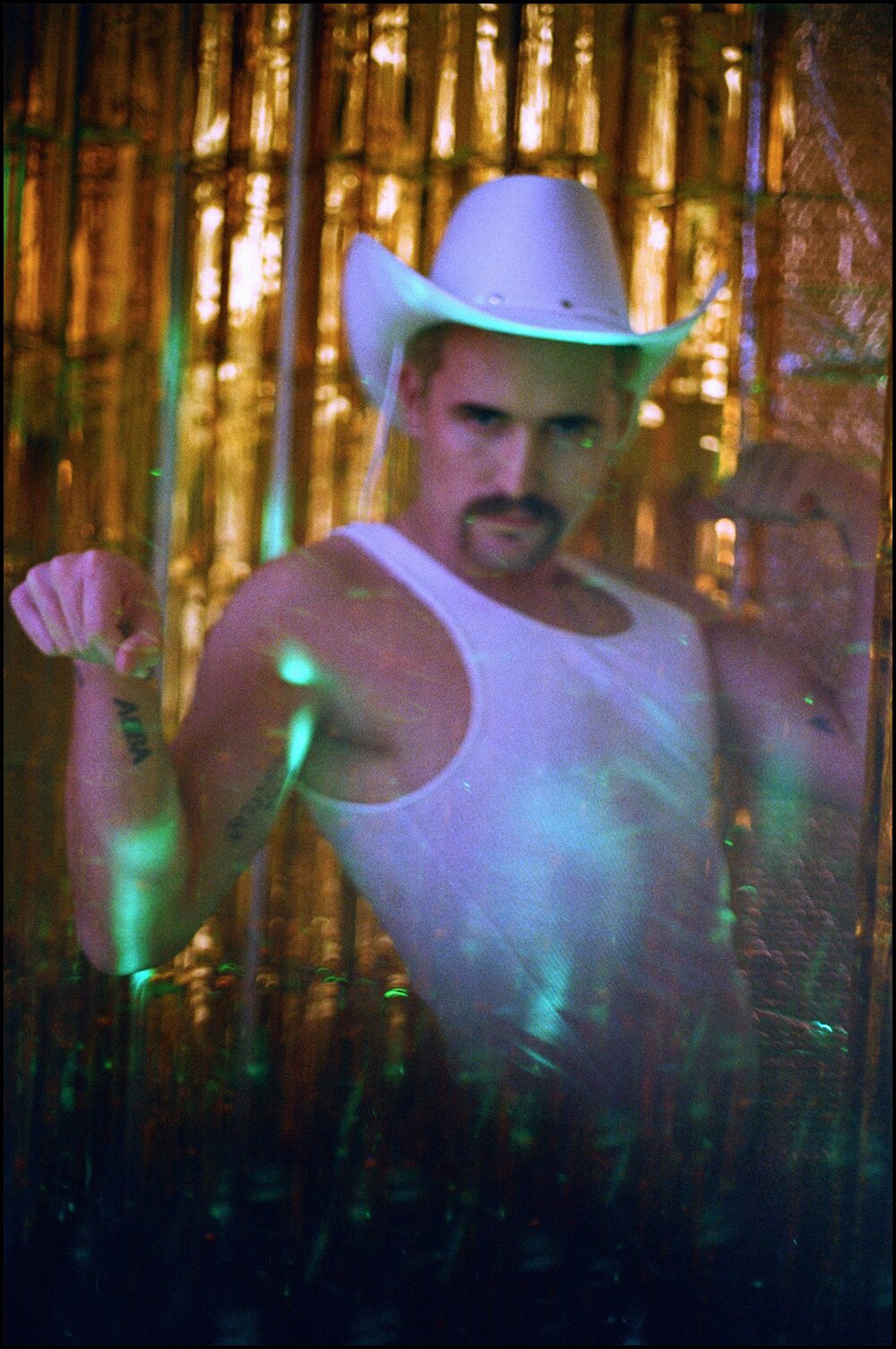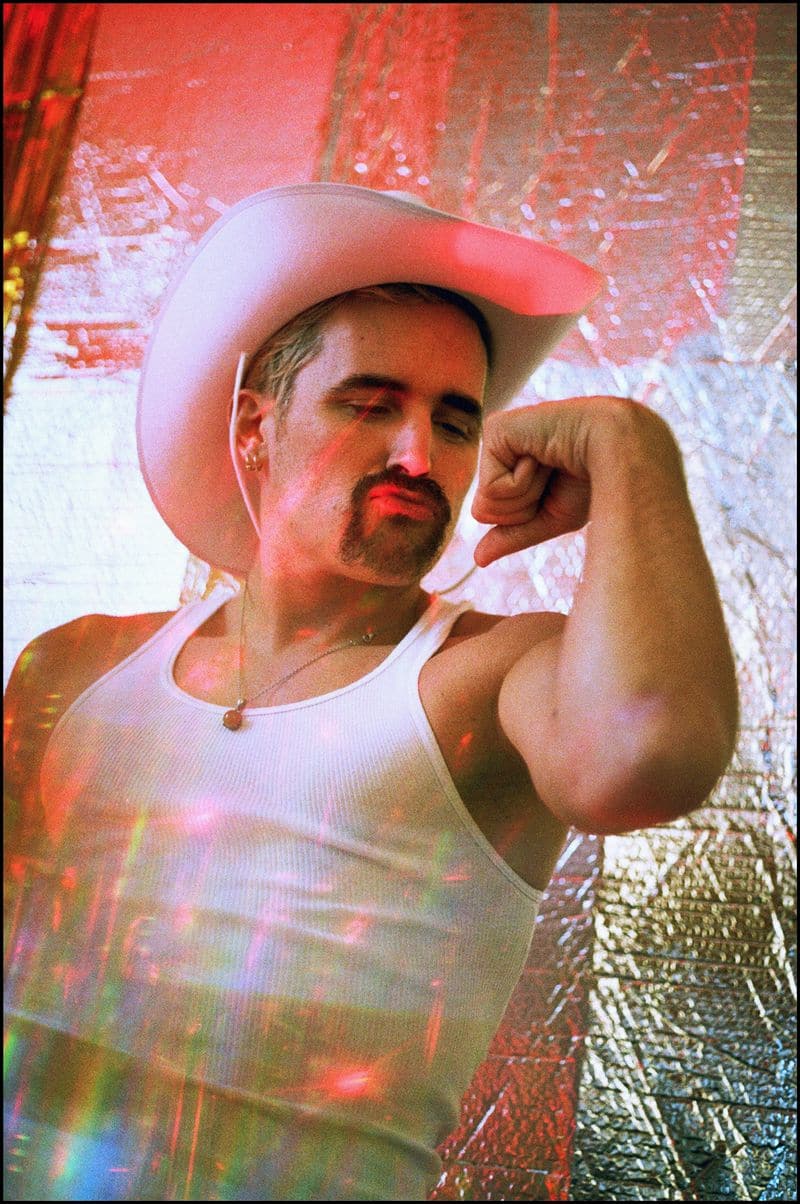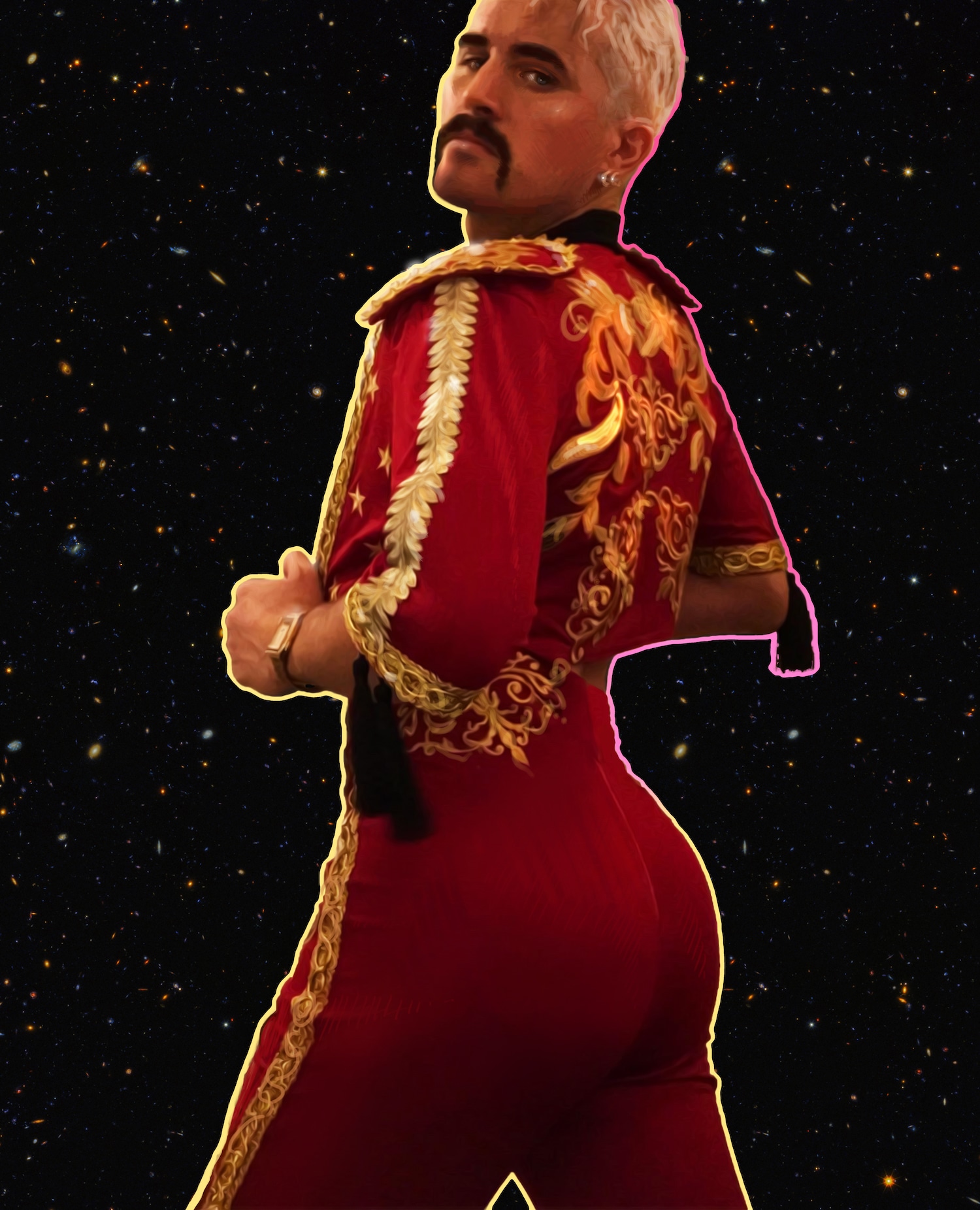Queer pop sensation Tom Aspaul on writing for Kylie, duetting with Kim Wilde and making disco for the gays

Tom Aspaul. (Provided)
In September 2020, Tom Aspaul unleashed Black Country Disco on the world – and it was exactly what the queer community needed.
Black Country Disco begs to be heard in a gay club. Across 10 tracks, the Wolverhampton singer-songwriter explores love, intimacy, heartbreak and sex – all against the backdrop of glorious, life-affirming, disco-infused pop. Coursing through the album is the influence of the Black Country, the part of the West Midlands where Aspaul grew up and recently returned to after more than a decade of living in London.
The album hasn’t had a proper outing yet for obvious reasons (thanks, COVID-19). Instead, fans have had to make do with swaying in their bedrooms, a gin and tonic in hand, imagining throngs of sweaty revellers surrounding them.
It seems fitting, therefore, that the album is getting the remix treatment six months on as vaccines finally make dancing and actual real-life fun seem like genuine possibilities once more. Black Country Discothèque will be released on 16 April featuring remixes from the likes of MNEK, Tom Ashlee, Initial Talk, as well as the vocal talents of Funk LeBlanc, Madeleine Wood, Brendan Maclean and actual ’80s icon Kim Wilde, the only non-queer collaborator on the record.
The album solidifies Aspaul’s position as one of the most exciting LGBT+ artists working today. But getting to this point was a long and often difficult journey.
He released his first single when he was 26-years-old, back in 2013. “That’s one year older than the 25s-and-over category on the X Factor,” he points out. “So I always felt I’d been playing catch up.”
Aspaul had always written songs, but it wasn’t until he found himself working in the Electricity Showrooms, a London pub frequented by music industry figures, that his career finally took off. One night, he ended up playing some of his demos for a label executive from 679 Artists
“I must have been drunk, because I would never do that normally. I was always quite shy, but she just really liked it and passed it on to other people.”
Things quickly snowballed, and before long, Aspaul found himself in a songwriting session with the Sugababes. From there, he met MNEK, who offered to produce his song “Indiana”. Somehow, the song ended up in the hands of Little Boots. She shared it with her label, Aspaul was given a publishing deal, and then the gay gods truly descended – Kylie Minogue’s team asked if she could cover “Indiana” for her album Kiss Me Once. The song ended up on her album, retitled as “Feels So Good”.
“That all happened within the space of six months in 2013,” Aspaul says. “It’s been such a rocky road to get to this point, because that was seven years ago, and I only feel like I’m reaching where I wanted to be now.”
After his string of early successes, Aspaul was “pigeonholed” as a songwriter that only writes music for other artists – and for a while, he loved it. He was in high demand, writing music for Little Mix, Dua Lipa and other artists. But the songwriting sphere was incredibly competitive. In the end, Aspaul came to realise that he wasn’t cut out for it.
“I really wanted to do my own music, basically. If your heart isn’t in it, then it really does show, and even though I was writing competent songs, it just wasn’t for me. And I do absolutely love writing songs for other people. It’s a massive thrill. But I have to have enough time to do my own stuff as well.”
Around 2018, Tom Aspaul’s upward trajectory halted dramatically. The standard of artists he was writing music for “plummeted”, he says, and he started to feel that the music publishing company he worked for was losing interest in him.
“I think I was probably costing them more money than making them money,” he says. Shortly afterwards, he was dropped by the publishing company, parted ways with his manager, and in one final blow, his five-year relationship came to an end.
Half the people that came into the club were people I’d worked with in studios, and they’d be like, ‘What are you doing behind the desk?’
“There was nothing really keeping me in London. I didn’t really have a job, or a boyfriend, or a manager, or anything,” he says.
For a year or so, Aspaul worked as a receptionist in Soho House to pay the bills. “I enjoyed it there, but because I’d been in the music industry for about five years before that, half the people that came into this members’ club were people I’d worked with in studios, and they’d be like, ‘What are you doing behind the desk?’ That was always really annoying. I always felt like saying, ‘Well what do you expect me to do? Like, the music isn’t making enough money for me. So I need to have a job.’ It was a job where I was constantly confronted with people who are either comfortably well-off, or they were doing better than I was, and then sort of rubbing it in my face.
“I knew I wanted to continue making music, so I moved back to the West Midlands, which is where Black Country Disco was born.”
Moving back to the West Midlands proved to be the right choice. There, he had the time, the space and the energy to devote himself fully to crafting and creating his album.
As a teenager growing up in Wolverhampton, Aspaul decided he would call his debut album Black Country Disco if he ever had the chance to release one. Now an adult with a string of songwriting credits to his name, Aspaul started busying himself with making that dream a reality. He threw himself into the sound of the West Midlands by listening to artists who hailed from the region, including Black Sabbath and Electric Light Orchestra.
“My main motivation was that I think as a region of the UK, it’s really unsung,” Aspaul says. “There’s no soap opera based out of Birmingham or the Midlands, it’s either Manchester or Bristol or London. And on TV, you have Ant and Dec from Newcastle, and you have Welsh TV presenters, but there isn’t anyone that sounds like they’re from the Midlands and is proud.
“So that was a motivation, to actually talk about this area of the country that has gone through a massive depression and deindustrialisation, and is struggling, and is ignored by the Tory government, and is ignored by everyone – by the rest of the country – and just make something really light and entertaining and gay and fun. I thought that was quite a subversive thing to do.”
There is a “slight melancholy” about the Midlands, Aspaul says. “It’s very grey, kind of depressing. And that lends itself really well to disco, because disco itself is a genre of music that was made by people who couldn’t be themselves really. It was invented by Black LGBT+ people in New York.”
Tom Aspaul immersed himself in ABBA, Diana Ross and The Nolans
Tom Aspaul had always loved disco, but he immersed himself in the genre like never before while making Black Country Disco. He fell in love once more with ABBA’s “bastardised, European” version of disco, and he also found a new appreciation for The Nolans (“their catalogue of music is actually really good,” he says). In his deep dive into disco, Aspaul also found inspiration in the back-catalogues of Diana Ross, Chic, Hercules and Love Affair, Jessica 6 and many others.
By the time Black Country Disco was released in September 2020, the music industry was in the midst of a much-discussed disco revival. Dua Lipa and Jessie Ware had released their own takes on the genre earlier in the year. Kylie took it a step further, releasing an album that was literally called Disco in November. The genre, Aspaul says, is timeless – which is why it keeps hitting the charts every few years, refusing to fade into the past.
“I think it’s something about the energy of the songs and the melancholy of like, let’s cry on the dance floor. It’s timeless and everybody – especially gays – they love that, and it’ll never go away. As for me being part of that movement, I never, ever meant for that to happen. It was never designed or planned that way. It’s an honour really to even be mentioned amongst their names and be considered to be part of that movement.”
The most recent disco revival is showing no signs of going away anytime soon, and Aspaul is working hard to keep it alive on Black Country Discothèque. It was “surreal” to get Kim Wilde of “Kids in America” fame to record vocals for the remixed version of “WM”, he says.
“It’s the perfect fit really, because with the remix album, even though there’s a wide variety of remixes and genres, it’s kind of themed around the ’80s. If the first album was the ’70s, this time we’re going a bit more synthpop – Kim Wilde’s era, to be honest,” Aspaul says.
Of his other collaborators, he adds: “All of the featured artists and remixes, I’ve tried to focus on making sure they’re mostly LGBT+, so aside from Kim Wilde, they are all queer, mostly. It’s a nice sort of collective of queer talent.”
Next up, Tom Aspaul plans to tour Black Country Disco – if he’s allowed to. On 12 April, he announced the Revenge Body Tour 2021, with planned dates in Birmingham, Manchester and London booked for July. The pandemic has made it “quite difficult” to nail down dates, but Aspaul is determined to get out and perform the album for his queer fans.
“I just want to give Black Country Disco its moment,” he says. “It’s such a shame that I haven’t been able to perform live.” When he is allowed to get back onstage, Aspaul will do “the entire album” as well as a few tracks from the remix album. “Definitely ‘The Program’, because it’s screaming out for a guitar solo,” he laughs.
Black Country Discothèque will be released on 16 April. “Traces” (MNEK Remix) is out now.




